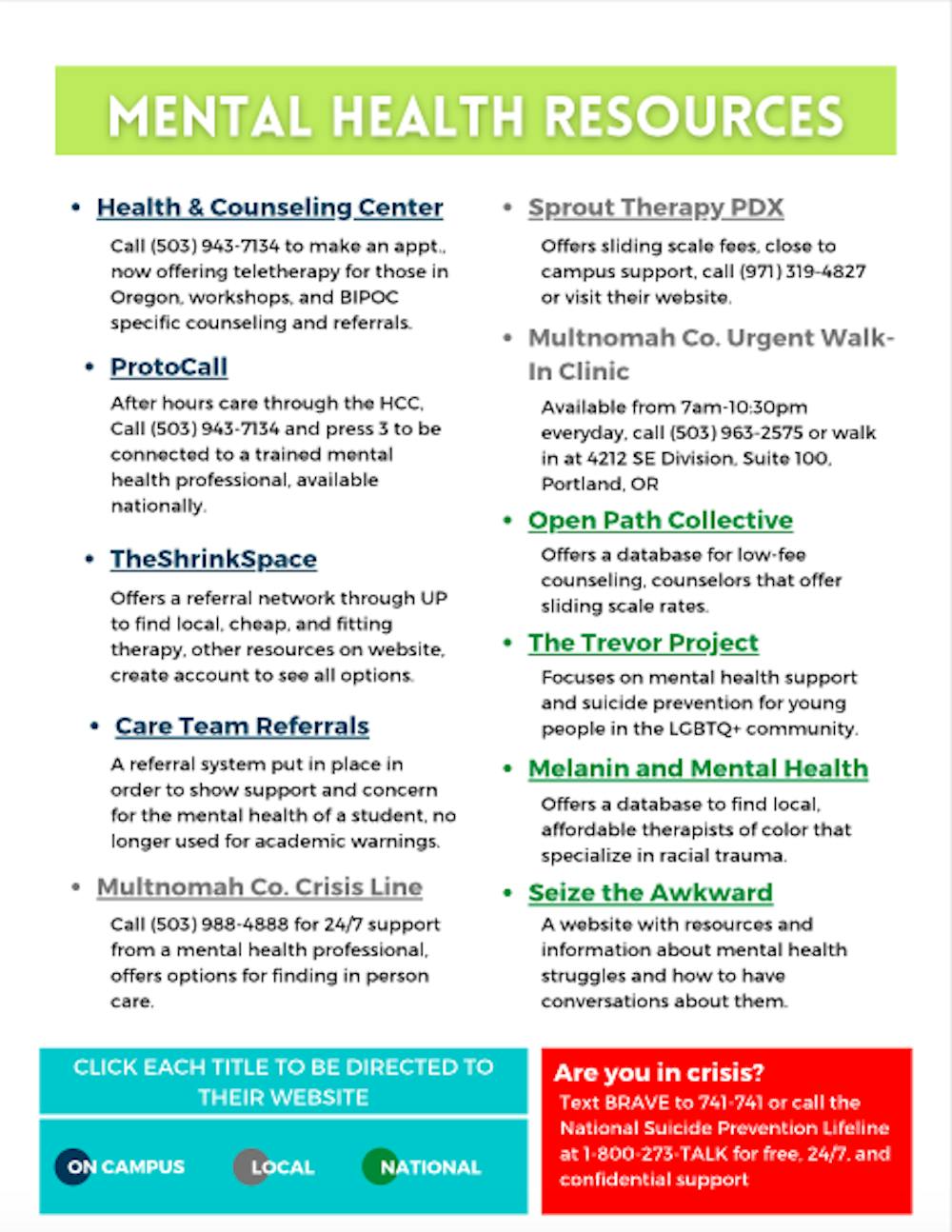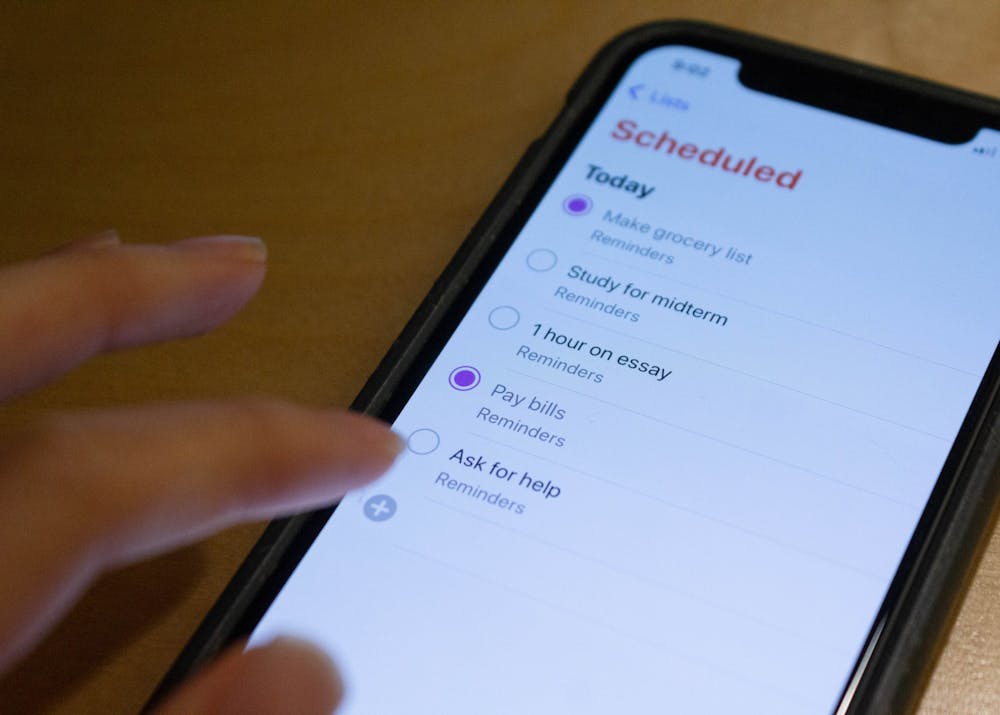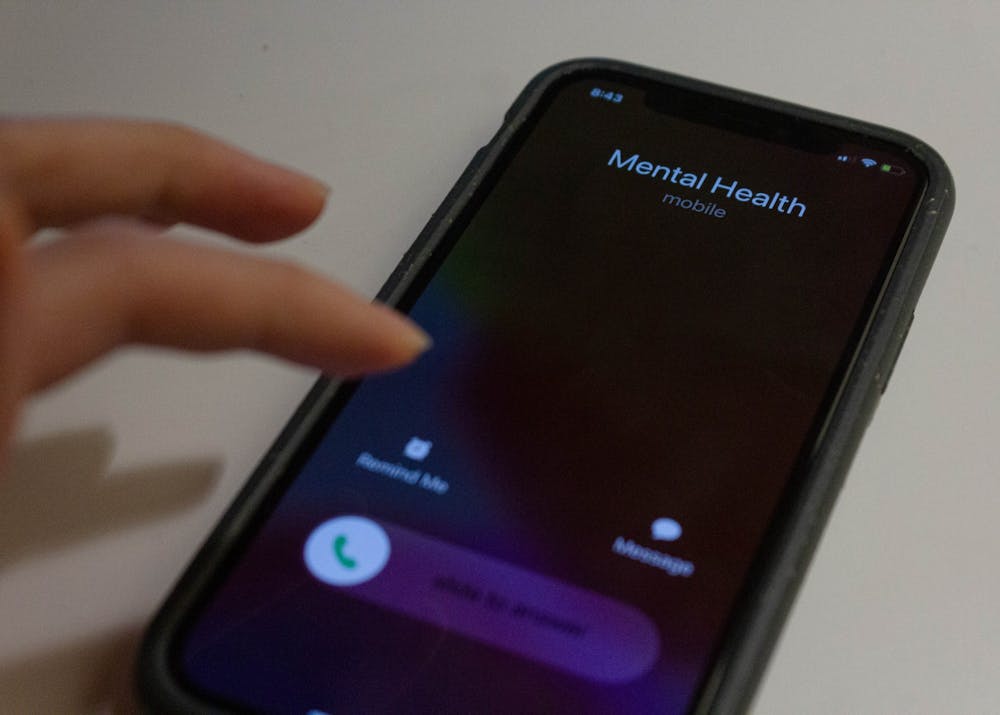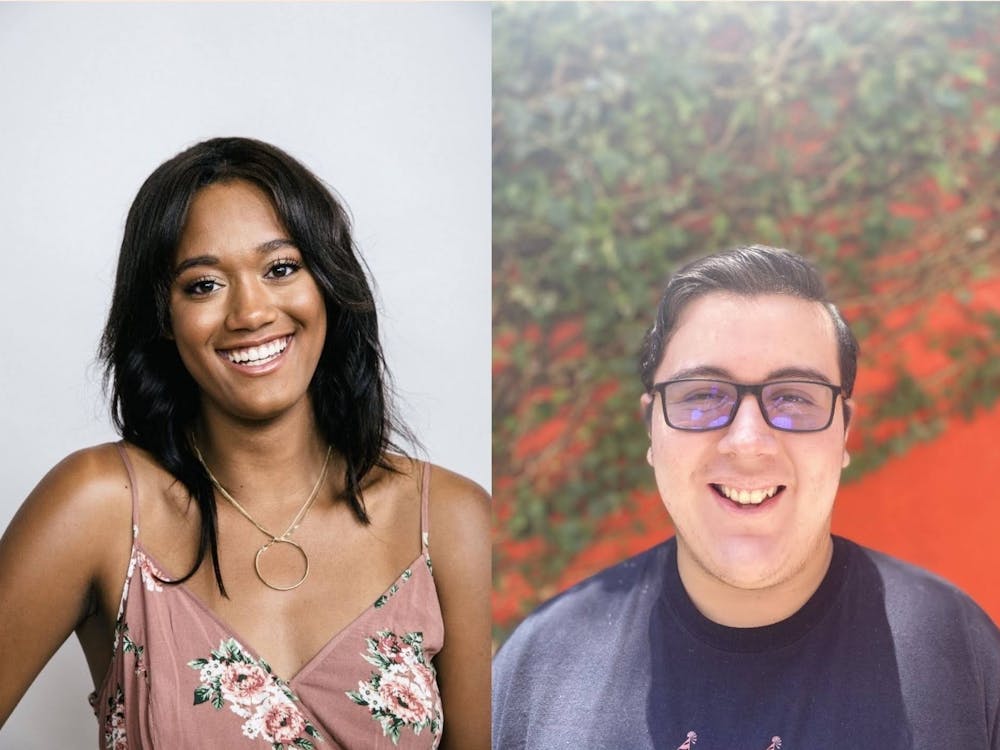Picture this: you’re anxiously awaiting for the psychiatrist you found on Psychology Today, with 5-star reviews, to pop up in the Zoom call for your virtual appointment. Sweat starts to form on your palms while your anxiety flares up. Your mind flying a million miles per hour is wondering what can help you feel like yourself again. You can feel your heartbeat steadily increase when suddenly it spikes as the doctor pops up on the screen. For many of us, taking this first step of reaching out to a professional calls for a brave soul. It’s easy to believe that talking to a doctor is a last resort, but psychology professor Renee Crowgey says otherwise.

Seeking professional help for your mental health can be overwhelming or intimidating, but it's important to get help sooner rather than later.
Canva by Jennifer Ng.
“So many people wait until they are at the very end of their rope, exhausting all coping [mechanisms] before they’re like ‘Oh now I’ll go to therapy’, whereas if that thought had been acted on a little bit earlier, I think that could have kept a lot of people from hitting that rock bottom,” Crowgey said.
When coping mechanisms stop working, you may ask yourself, now what? Doing yoga and exercising can only help set the framework for creating a healthier headspace, but going to professionals for help might be a more effective option.
“I would encourage students, if they’re starting to feel like it’s too much — if they’re starting to feel the stress in this prolonged cloud of the global pandemic — to seek treatment sooner than later,” Crowgey said. “The sooner you get in, the more quickly you can see improvement.”
If you’ve never been seen by a professional for mental health issues, it can be daunting not knowing what you're getting yourself into, but rest easy knowing that you are not alone. 1 in 5 American adults are estimated to have experienced a mental health disorder in a given year.

Talking with a therapist is a common mental health treatment for many Americans.
Canva by Jennifer Ng.
During the first meeting with your counselor, you should expect to be asked personal questions to help gauge your specific situation. From there, doctors are able to refer you to different types of treatment that best suits your needs.
Treatment can vary from counseling, the possible addition of being prescribed a mediation, to a referral to a specialist. It’s helpful to do your own follow-up research to make sure the treatment you will be receiving is the best fit for you.
If you are prescribed medication, realize that it can be a frustrating process at times. While these types of medication can help, it can take weeks or months at a time to find the right fit for your body and mind.
Sarina Saturn, advisor of the Active Minds club and psychology professor at UP, has seen how medication can help some, but also urges to have an awareness of the problem that is at hand. This will help you evaluate what the best type of treatment mechanism is for you.
“I do know that different types of medication can save lives and people really depend on them, but oftentimes if there is a situational factor going on related to a coping skill or toxic environment, that can often mask the problem, [medications] can make things worse,” Saturn said.
Erin Currie, a psychology professor at UP, urges students to realize that while prescribed medication can work, its true intent isn’t to heal but to help.

Students are dealing with many sources of stress and anxiety which will take a toll on their mental health.
Photo illustration by Jennifer Ng.
“It’s more like taking insulin,” Currie said. “It’s not an antibiotic or a shortcut, it’s another way to help but I always suggest that regardless, [of medication choices] people should try therapy.”
If you are considering going to a therapist, in the podcast The Savvy Psychologist, host Jade Wu gives great tips on how to find the right therapist for you. It covers topics including the different types of treatments, finding potential therapists, what to look for in a potential therapist through their philosophy of treatment, what a good therapist constitutes, and ways to reduce the costs. Wu believes that everyone shouldn’t have to jump through loops in order to get their mental health back on track, and this can be seen within each episode of her podcast.
“Finding a good therapist should not be like finding an empathic needle in a haystack,” Wu said.
The Active Minds club at UP has also noticed how hard it is to find the right therapist, especially for college students who are away from home. They have collaborated with the Health and Counseling Center for a “Shrink Space”. With the help of Active Minds you can find a list of local providers along with a checklist that helps narrow down results as to who will be able to resonate with you and help navigate you through your issues.
Crowgey would agree with the importance of finding a good therapist, pointing out that developing a connection where the patient can trust the person who is helping them is vital. While it is important to do research on your potential therapist, it is also important to speak up about what you hope to get out of that relationship and treatment.
“Make sure that you have a voice and your own truth, that is what I always tell people going in for the first time,” Crowgey said. “It can be a scary process to open up to somebody you don't know, that's such a brave thing to do.”

There are mental health resources available to UP students across the country.
Image courtesy of Sarina Saturn.
For those who are apprehensive about reaching out, know that getting in touch with Active Minds is a great resource to fall back on when you have questions about your own mental health. They meet every Wednesday via Zoom at 7:30 p.m. PST, and provide a safe space for any student who wants to be able to talk about their stresses freely or learn something new that they can apply to their everyday life to add more stability. Lauren Berger, an assistant psychology professor at UP, feels that having this shared community space is fantastic.
“I think clubs like Active Minds are a less stigmatized way and kind of introduction to discussions about mental health,” Berger said. “Students have the opportunity to explore and navigate those discussions, and potentially pursue treatment through counseling services or some other avenue.”
Active Minds saw the need for more guidance for students at UP when it came to learning more about mental health awareness specifically for those who identify within the QT-BIPOC community. Saturn has been working closely with senior Max Oishi, President of Active Minds, to ensure that all students at UP can be included in the conversation.
The club also recently won a Health Equity award for how well its outreach has been with marginalized communities on campus. Oishi recognizes that diversity within this club is essential for it to successfully help UP students.
“It’s definitely really important for us to be able to create a space where we feel like we have all different identities and communities,” Oishi said. “Just from my own personal experience...as a person of color, there are certain situations where I didn’t feel welcome for whatever reason. We want Active Minds to be that space where anybody can join and be part of the community.”

Dealing with mental health can be hard to prioritize, but finding spaces and resources specifically for mental health issues can be very beneficial.
Photo illustration by Jennifer Ng.
Currie believes that one of the main stressors that many students are facing right now has a lot to do with social isolation and having these community shared spaces can be very beneficial in getting over that slump of feeling like you are all alone. Crowgey would agree and believes that finding your support system is the first step in being able to reach out to a professional.
“I want to encourage anyone that is struggling to find your support,” Crowgey said. “It might not be a trained professional but it might be a roommate, a friend, a cousin. I don’t know who it’s going to be but think about the people that have been there for you before and keep leaning on them. They need you as much as you need them right now.”
Brie Haro is a reporter for The Beacon and can be reached at haro23@up.edu.








